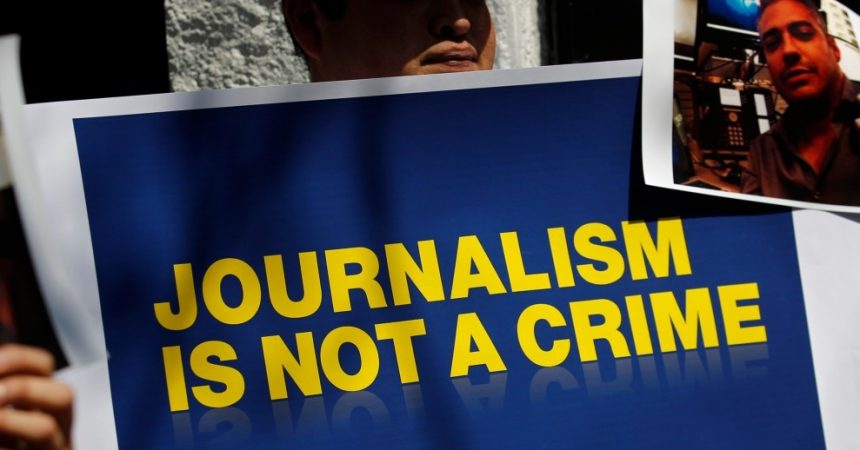The European Commission must effectively capture the challenges that journalists and the media are facing and include specific recommendations targetting member States in its annual rule of law report, according to a proposal put forward by more than 20 international press freedom organisations.
In a set of recommendations to the Commission, the European Centre for Press and Media Freedom (ECPMF) together with 23 other press freedom organisations referred to the murders of Daphne Caruana Galizia and Slovakian journalist Ján Kuciak as examples of the numerous threats faced by journalists in Europe.
“The killings of Daphne Caruana Galizia in Malta and Ján Kuciak in Slovakia shed light on the numerous threats faced by journalists within EU member states. Journalists are daily exposed to censorship, intimidation, online and offline harassment, abusive lawsuits and physical violence for doing their work and exercising their fundamental right to freedom of expression,” it said.
The Daphne Caruana Galizia Foundation was among the 23 organisations that put its name to the recommendations in a document called ‘From Blueprint to Footprint: Safeguarding Media Freedom and Pluralism Through the European Rule of Law Mechanism‘.
The Annual Rule of Law Report must be timely, reflecting diversity & effectively capture the challenges by journalists & the media sector. The mechanism must be strengthened with country-specific recommendations, developing effective responses & establishing a sanction system! pic.twitter.com/9hd4y2B99k
— European Centre for Press and Media Freedom (@ECPMF) April 17, 2020
The European Rule of Law Mechanism was launched in July 2019 and the organisations said they strongly welcomed the chapter dedicated to media freedom and pluralism in the Annual Rule of Law Report.
This was not only an acknowledgement that independent journalism and access to pluralistic information were one of the pillars of democracy but also a key step in addressing the worrying state of media freedom and pluralism in the EU, they said.
The organisations referred to media ownership by the State or private sector saying that these “pose a huge threat to media pluralism, in a broader context where the media sector struggles for its financial sustainability. This has a chilling effect on press freedom and endangers citizens’ right to information.”
The statement also makes particular reference to how the COVID-19 crisis is being used by a number of governments to curtail the rule of law principles. The press freedom organisations insisted that access to information was essential for the public’s right to know together with a safe working environment for journalists in a sustainable media sector.
The recommendations included four main points. The first was to assess the timeliness of the annual Rule of Law report as the organisations recommended it was only published with concrete recommendations and “when there was added value to existing evidence”.
Another proposal was to have country-specific, tailor-made recommendations and introduce sanctions for systematic breaches of the rule of law. The report should also include the voice of journalists, judges and other key players involved in upholding the rule of law.
Finally, they recommended that the annual Rule of Law report gave a clear picture of the challenges faced by the media, including transparency of ownership, an environment where pluralism was respected and the need to create an adequate framework for the protection of journalists.












